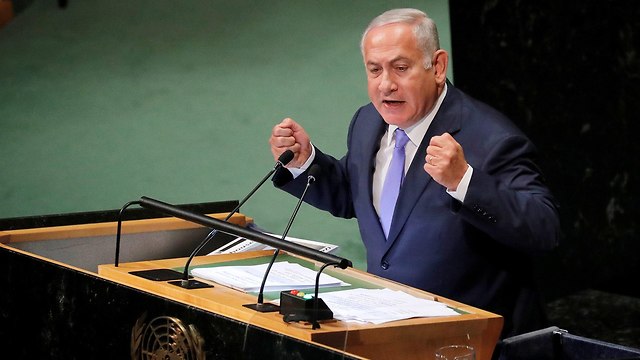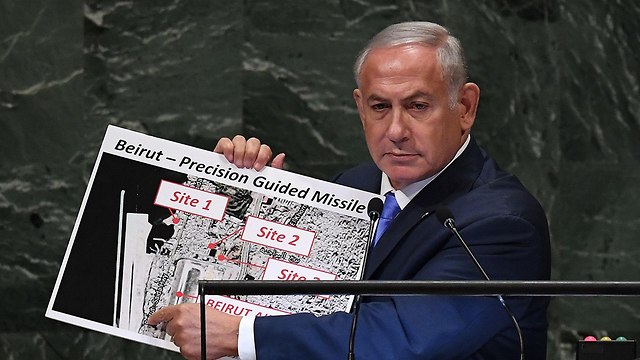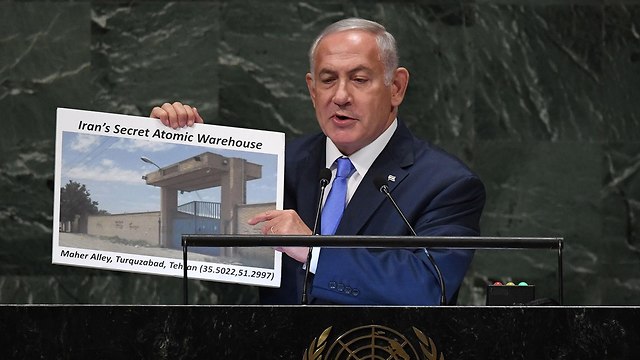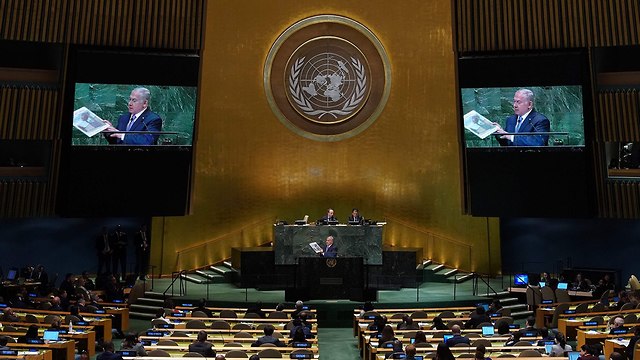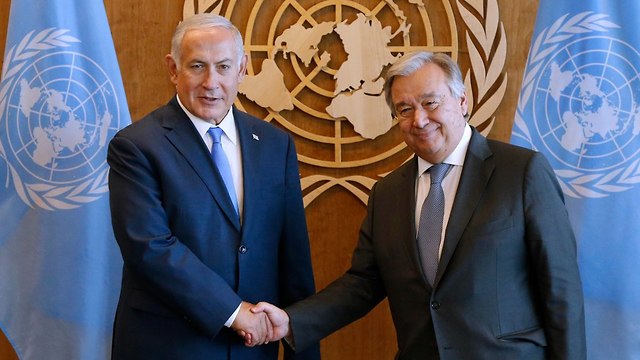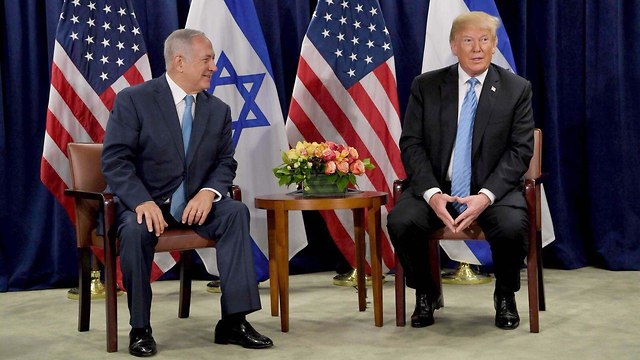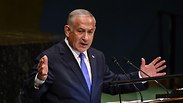

Netanyahu’s UN speech was a masterpiece
Analysis: The carefully crafted speech at the General Assembly contained several messages designed to reinforce the US’s backing of Israel, shore up his political support base, nudge the Europeans into engaging in some historical introspection as they continue to appease Iran. It could not have been delivered better by anyone on the world stage.
The speech delivered by Prime Minister Benjamin Netanyahu at the UN General Assembly on Thursday was perhaps the best he has ever given outside of Israel’s borders. Not only because of his eloquent English and exceptional talents of rhetoric, but also because of his almost perfect ability to communicate practical and ideological messages to different target audiences in such a way that his messages bring about practical results and have the desired psychological impact that he is seeking.
The most striking example was his claim about the warehouse storing nuclear equipment and material in Tehran. Netanyahu took the intelligence material and used it to challenge the International Atomic Energy Agency (IAEA) and portrayed it as a toothless and untrustworthy organization that is unable to fulfill its mandate.
Netanyahu said that he had conveyed the information about the atomic warehouse to the IAEA and its director, Yukiya Amano. In principle, his message was unambiguous: Our speaking quietly and transferring information to you has not encouraged you to take action.
He was saying that he wants to see the IAEA face the international community and the world media when the Western world at least knows that they have the authority to carry out inspections of nuclear sites whenever they want, according to the terms of the 2015 Iran nuclear deal.
But Netanyahu was not content with merely challenging the IAEA in the hope that it would act. He also told the world about the 50 kg of radioactive material that the Iranian regime spread throughout Tehran in a bid to cover up its plans, stressing that any of the capital’s residents could be harmed. In doing so, he added fuel to the fire of resentment towards the regime which is burning in the hearts of many Iranians.
Netanyahu was also not content with exposing the atomic warehouse in Tehran. He also issued a red card to the civilians of Lebanon, emphasizing that Hezbollah has facilities in the vicinity of Shi’ite neighborhoods for upgrading the accuracy of missiles and rockets. He showed exactly where these facilities were situated and warned that anybody living near them is in harm’s way.
In highlighting his points, Netanyahu laid out before the international community an important aim. Israel does not want to bomb from the air or openly sabotage these facilities in order to avoid sparking a war with Hezbollah in Lebanon. The exposure of these facilities, nevertheless, obliges Hezbollah to make a decision: either move them elsewhere or endanger the civilians in the area. In any event, it will certainly interrupt the activities of the facilities and will force Hezbollah to move them to less populated areas where they are easier to hit.
In order to ensure that these goals are achieved, Netanyahu coordinated in advance a statement from the IDF Spokesperson's Unit, which provided Lebanese citizens with the information they lacked in order to humiliate Hezbollah and instill fear into the civilian population.
Netanyahu’s clever use of the sensitive intelligence information for diplomatic purposes and in the war for public opinion can be considered groundbreaking in the current era and it will likely prove to be efficient.
At the same time, Netanyahu managed to shame Europe for their stance of appeasement toward Iran. In doing so, he helped Trump and perhaps even complicated European efforts to sabotage the US sanctions against Iran. Netanyahu did this by drawing a clear parallel between the EU’s appeasing of Iran today and the policy of appeasement by UK Prime Minister Neville Chamberlain towards Hitler in 1938.
This shaming has a goal and there is no doubt that some leaders in Europe were shuffling uncomfortably in their seats when the content of Netanyahu’s speech was brought to their attention.
The rest of the speech was a debate about the Palestinian, and liberal and leftist circles in the West accusations, accusing Israel of racism and apartheid for passing the Nation-State Law.
Netanyahu skillfully raised argument after argument while strengthening his political support base from his own party and others. The other target audience for his speech was President Trump, who Netanyahu praised and furnished with compliments.
He did not only say the things he said as a price to be paid for Trump’s pro-Israel stance, but also to cajole him by applauding the continuance of his unequivocal pro-Israel policies, designating him as worthy of praise and honoring him with applause from the UN podium.
The Evangelicals supporting Trump also received their own message, meant to remind them, by quoting from the bible, that Israel is still the one worthy of their support.
Every message was thoroughly calculated to present two or three goals and when Netanyahu aimed his remarks at the Evangelicals, he also adopted the style of language employed by Evangelical preachers. There is no doubt that this speech was a work of art that few leaders in the world could pull off; experience teaches us that we cannot overstate the importance of speeches delivered at the annual UN General Assembly.














